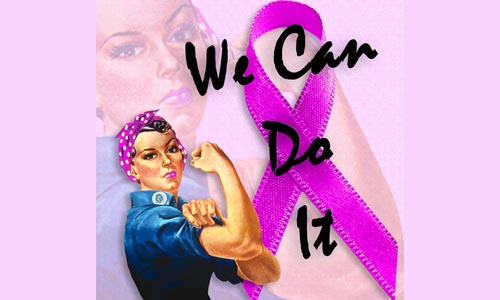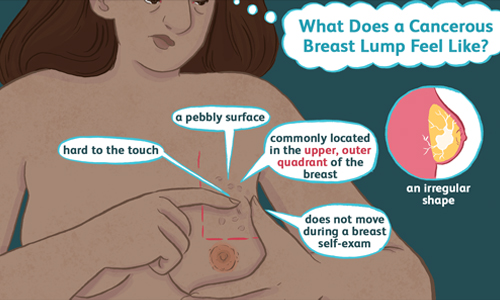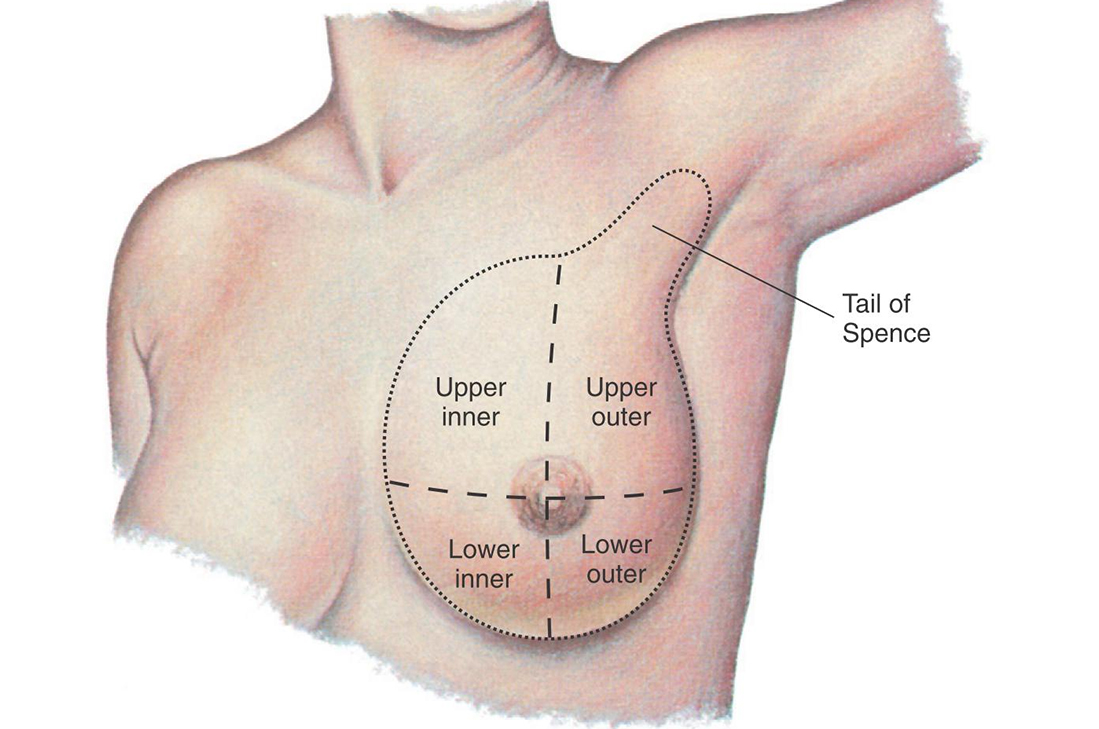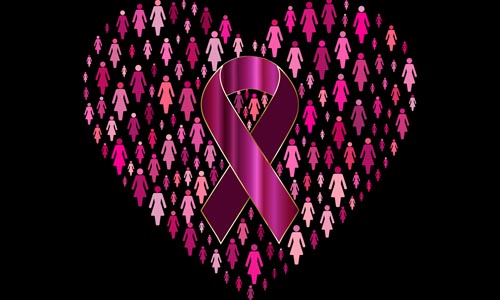Many of us are not familiar with the anatomy of our breasts and how breast cancer is caused until it’s too late. Read the blog to know what are the quadrants of the breast and preventive tips for breast cancer.
Different Quadrants of the Breast

Female breasts are completely made of fatty and fibrous tissues and muscles usually lie far behind these fatty tissues to protect your rib cage.
The fatty tissues are medically termed glandular tissues. Glandular tissues are responsible for breast shape, firmness and perkiness. Thus, a weak glandular tissue can lead to breast sagging.
Glandular tissues can be further divided into ligaments, bulbs, lobes and lobules which form the innermost part of the breast just behind the areola that directly connects to our nipples through ducts and aids in the secretion and feeding of milk.
As shown in the above image our breasts can be divided into four parts with the nipple as the centre point namely the upper outer quadrant, lower outer quadrant, upper inner quadrant and lower inner quadrant.

Which Quadrant of the Breast Is More Susceptible to Cancer?
A hardened glandular tissue is like a minor tumour that usually goes unnoticed until it has grown considerably. The upper outer quadrant of the breast situated near the armpit is more susceptible to breast cancer because glandular tissues are found in abundance there.
It is important to understand the difference between a normal lump and a tumour. Self- diagnosis is never recommended but as a woman, it is important to know your body and be able to detect if something is wrong. Here are the key points you should know:
- Touch your breasts. You will definitely find lumps, what you should look for is how those lumps feel. Are they uniformly hard or do few lumps feel harder than the other?
- If they feel other than the other there are chances that they could be tumours. You can wait for a few weeks and check them again as they could be because of hormonal changes or just PMS. If the hardness doesn’t change it is important to get it checked out.
- Swelling and pain are common before, after and during your periods but if it doesn’t go away it is necessary to get it checked out.
- Skin irritation that is not due to allergy, nipples turning inwards or dimpling in breasts is not common.
- Nipple discharge is common for pregnant, lactating or in women who consume certain medicine that affects hormones. If you don’t fall under these categories and experience nipple discharge then it is a sign of something wrong.
- Lumps in the underarm should never be overlooked.
Myths and Breast Health Tips
The internet is filled with myths about breast cancer. Let’s debunk those myths with facts:
- Myth- Breast cancer is hereditary.
Fact- You can get breast cancer despite your family history, health, age, gender and habits. - Myth- Bras can cause breast cancer.
Fact- Studies have proved that wearing bras won’t cause breast cancer. But it is recommended to sleep without a bra. - Myth-Too much sugar causes breast cancer.
Fact- Consuming too much sugar, carrying cell phones inside your bra, falling on your breasts do not lead to breast cancer. - Myth- Mammograms can detect breast cancer in its early stages.
Fact- Mammograms are the best but they are not foolproof. There are chances for breast cancer to go undetected at its early stages. - Myth- You are completely free of breast cancer after treatment.
Fact- Definitely not, once you are diagnosed with cancer and treated for the same there are chances for it to reoccur in the future. Thus, continuous care and routine checkups are necessary.
Now for the tips to prevent breast cancer in breast quadrants:
- Routine checkups are necessary once you cross your teenage years.
- Breastfeed your baby to avoid milk clotting.
- Limit exposure to alcohol and medicine that alter hormones.
- Avoid birth controls pills as much as possible and definitely don’t use birth control if you smoke.
- Never self-diagnose yourself and consume vitamin supplements or other medicines to improve breast health.
Breast cancer doesn’t mean you will have to amputate your breasts and even after recovery breast cancer can alter many aspects of your life and finding peace with your new normal is the best way to overcome it.


